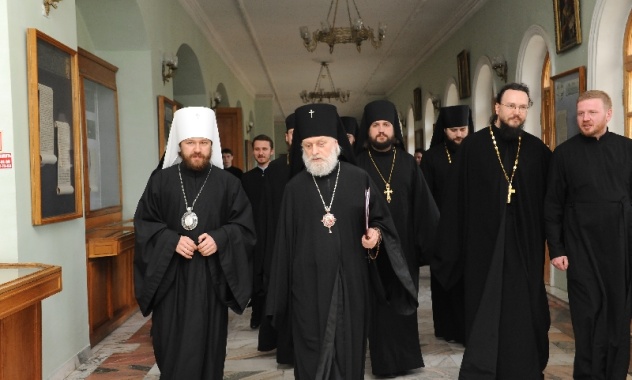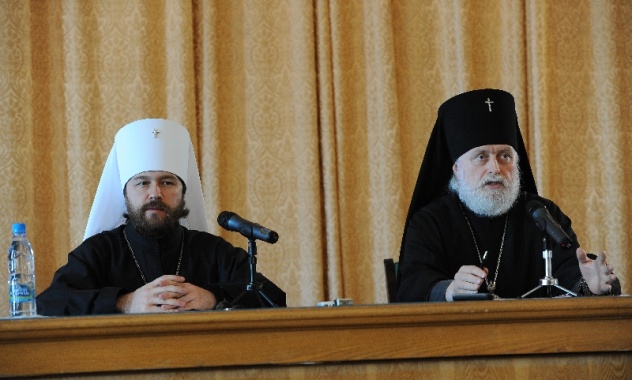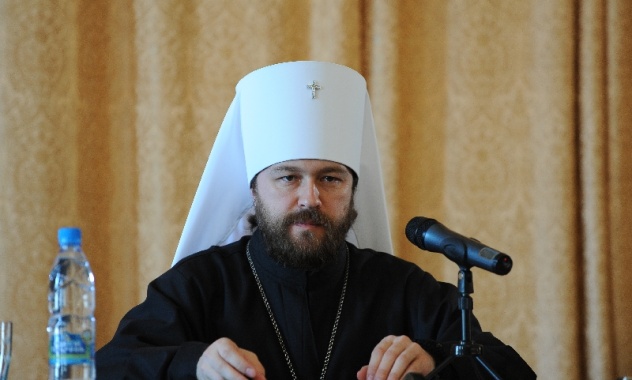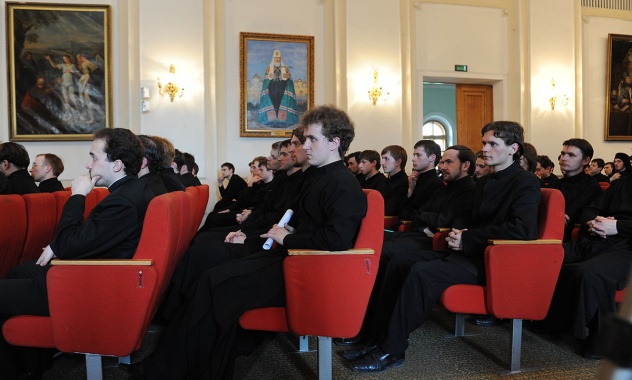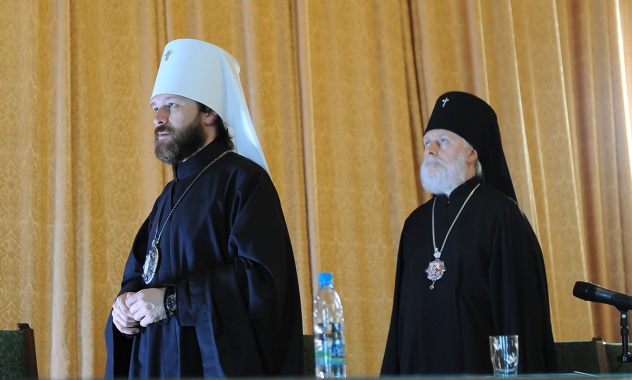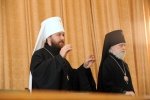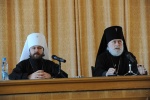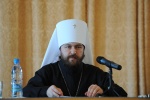Rector of Church Post-Graduate School addresses students of Moscow Theological Academy and Seminary
Metropolitan Hilarion of Volokolamsk, rector of Sts Cyril and Methodius Post-Graduate and Doctoral School, gave a talk on May 10, 2010, to students of the Moscow Theological Academy and Seminary.
He spoke about theological education and the Church’s Post-Graduate and Doctoral School, saying in particular, ‘The education process in our academies and seminaries is structured in such a way that a student as if enters a river that flew its way before him and will continue flowing after him. All that is left for him is to drift. And many students, unfortunately, take their studies in theological schools as movement in a common stream. There is certain inertia linked with this way of thinking and educational system’.
The metropolitan stressed that His Holiness Patriarch Kirill of Moscow and All Russia attached a great importance to theological education. He reminded the students of His Holiness’ statement that to reproduce church personnel is to reproduce the Church itself. It is essentially the Tradition in its dynamic as it is handed down generations. That is why theological education is immediately relevant both to the innermost depths of the Church and its most important tasks.
Speaking about the importance of reform in the theological education system, the rector stated, ‘We should create a new generation of clergy who will meet the demands of the new era intellectually, spiritually and ethically’.
He also said that ‘our system of theological education, just as our whole Church, experienced a hard period of persecution when the task was not to create high theological scholarship but to provide the Church with cadre. The theological academies and seminaries set themselves this narrow-purpose task after their regeneration, whereas today the task is much broader: to educate a new generation of pastors, bishops, scholars, church diplomats and church leaders’.
‘The whole Church’, he said, ‘has to mobilize its inner intellectual and spiritual resources to fulfill the new tasks posed before us by the modern world. It means above all that we should learn. But while learning we should be aware of what we learn for. The educational process should be built in such a way that a graduate of a theological school could be capable of active missionary work, independent thinking and independent scholarly work. A student should not just receive a certain sum of knowledge but also learn to use what is described as scientific method, which is independent work with sources and independent study of the Church tradition. He should acquire the skill of making a comparative analysis of what he received from our church Tradition and what is stated by the traditions of other confessions and religious communities. He should understand the meaning of Orthodoxy and be capable of giving a clear answer to any question about our faith, using his inside knowledge of the Tradition and his ability to defend and uphold it’.
After his address, the rector answered numerous questions concerning training in the Church Post-Graduate School and, at students’ request, highlighted inter-Orthodox relations, today’s secular tendencies in Europe, etc.
After the meeting which lasted two hours, Metropolitan Hilarion gave to the Academy’s library his Orthodoxy in two volumes.
DECR Communication Service








